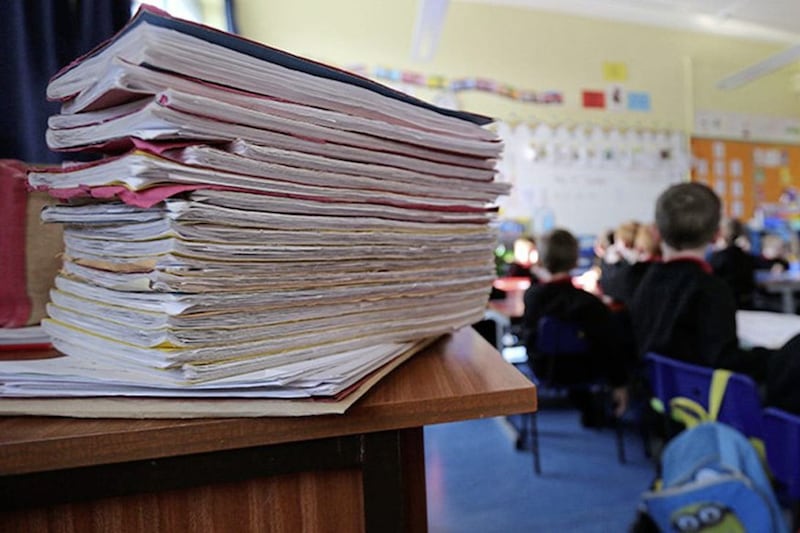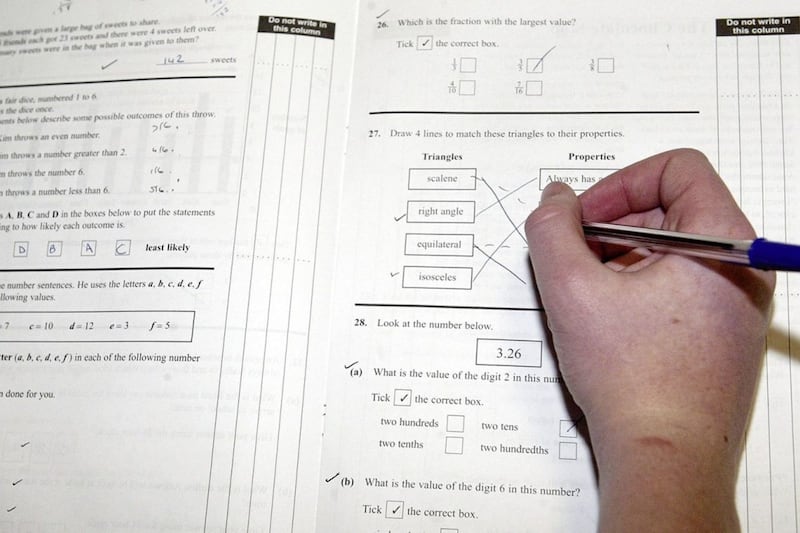THERE were "consistently stark social differences in pupil intake" to schools when transfer tests were cancelled due to Covid-19, a new report has found.
In 2021, grammar schools continued to admit many pupils from affluent backgrounds despite the cancellation of the tests.
The Centre for Research in Educational Underachievement (CREU) at Stranmillis College, Belfast found "grammar schools exercised their freedom to set their own admissions criteria in the non-testing year".
The study also suggests non-grammar schools still had more pupils from disadvantaged backgrounds or with special educational needs.
The Testing Times - Northern Ireland Post-Primary School Transfer without Tests in 2021 report examines lessons from the ‘non-testing’ year of post-primary transfer when tests were cancelled due to Covid-19 public health concerns.
It meant grammar schools developed a range of alternative admissions criteria.
The research, funded by the Nuffield Foundation, looked at what difference the cancellation of the transfer tests run by AQE and PPTC, made to grammar schools and the pupils they selected.
Instead of test results, most grammar schools used criteria based on potential pupils having siblings already at the school, having registered for the transfer tests or going to a nearby primary school.
Just three out of 63 grammars used the results of previous primary school tests in 2021 when deciding who to admit.
The study found the absence of the tests made almost no difference to the social background of pupils admitted, with priority given to pupils with an older sibling at the school, having already registered for the AQE/GL tests in that year or being the eldest/first/only child.
Priority was also given to those having a sibling previously enrolled and attending a listed feeder primary school.
The research highlighted there are still "very stark differences" and a "huge disparity" in the social backgrounds of pupils in grammars and non-grammars with just 15.8 per cent of pupils in grammars in 2021/22 entitled to free school meals compared to 39 per cent in non-grammars.
Around 25.2 per cent of pupils in non-grammars had some form of special educational need, compared to 5.6 per cent in grammars.
Non-grammars also had many more children from the most disadvantaged backgrounds and newcomer children - those whose first language is not English.
The researchers said the "findings of this study raise fundamental questions regarding the future of a selective education system which is characterised by such consistently stark differences in the demographic background of those pupils in year 8 transferring to grammar and non-grammar schools in Northern Ireland".
Professor Noel Purdy, CREU director, said: "We hope that the findings presented in this report will help unlock the current policy paralysis around academic selection in Northern Ireland, and encourage fresh evidence-based discussion among all interested parties (politicians, policy-makers, school leaders, parents and children) around the future of post-primary transfer."








